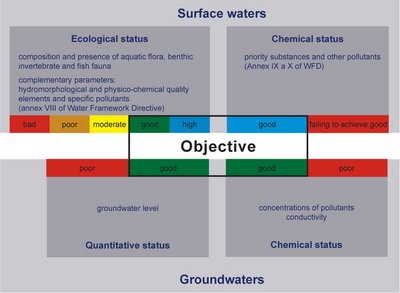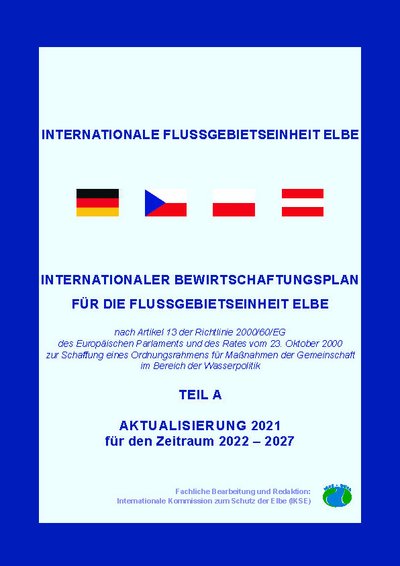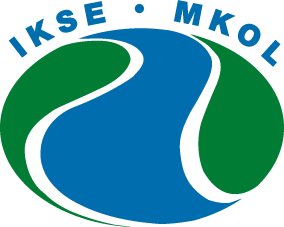Water Framework Directive
Objective: Good status of surface waters and groundwater
Since the end of 2000, the Water Framework Directive has established a regulatory framework for the measures of the European Community in the field of water policy. The Water Framework Directive aims at reaching a good status of the surface and groundwater bodies. Procedures and instruments have been set up, which need to be implemented by the member states.

The four countries in the Elbe River basin – Germany, the Czech Republic, Austria and Poland – have agreed to coordinate their approach for meeting the requirements of the Water Framework Directive in this river basin under the roof of ICPER.
In doing so, the ICPER was able to continue the good work and make use of the experience with the implementation of the Immediate Action Programme ("Erstes Aktionsprogramm (Sofortprogramm) zur Reduzierung der Schadstofffrachten in der Elbe und ihrem Einzugsgebiet") 1992 to 1995 and the Elbe Action Programme ("Aktionsprogramm Elbe") 1996 to 2010. These programmes were focussed on solving problems in the field of isolated municipal and industrial wastewater discharges, on reducing the diffuse loads (nutrients and herbicides) from agriculture, and reducing the diffuse loads from landfills and polluted sites. The Elbe Action Programme was completed with a final report in 2010.

The Water Framework Directive has introduced new incentives and challenges. For surface waters it sets great store by biologic quality components and the morphology of the waters. The focus on groundwater and economic aspects were also new for the activities of ICPER. The assessment of the water status pursuant to the Water Framework Directive is complex and the assessment criteria are challenging. One single parameter with bad values will result in a bad overall assessment. The number of quality components and parameters examined has been considerably expanded in comparison with the past practice, particularly biological components, i.e. animals and plants living in the waters.

The river basin management plans and the programmes of measures are an fundamental instrument for achieving the environmental objectives addressed in the Water Framework Directive. For the first time, they have been elaborated and published in 2009 and have to be reviewed and updated every six years thereafter.
For the international river basin district Elbe, a joint river basin management plan - the „International Management Plan for the Elbe River Basin District“ was produced. It consists of the jointly elaborated part A with the summarising information for the whole river basin district, and of the parts B, i. e. the plans elaborated by the states for their national parts of the river basin district.
On 22nd March, the ICPER published the updated „International Management Plan for the Elbe River Basin District“ (Part A) for the period 2022 – 2027.
Participation and consultation of the public

It is encouraging to note that the work of ICPER has been supported by the public with critical and constructive comments. In this context, ICPER is more active in the involvement of the general public in the elaboration of the management plans than is required by the Water Framework Directive. Activities for informing and consulting the public such as seminars or expert talks are held under the roof of the International Elbe Forum. The public also submits written comments on individual implementation steps of the Water Framework Directive.





